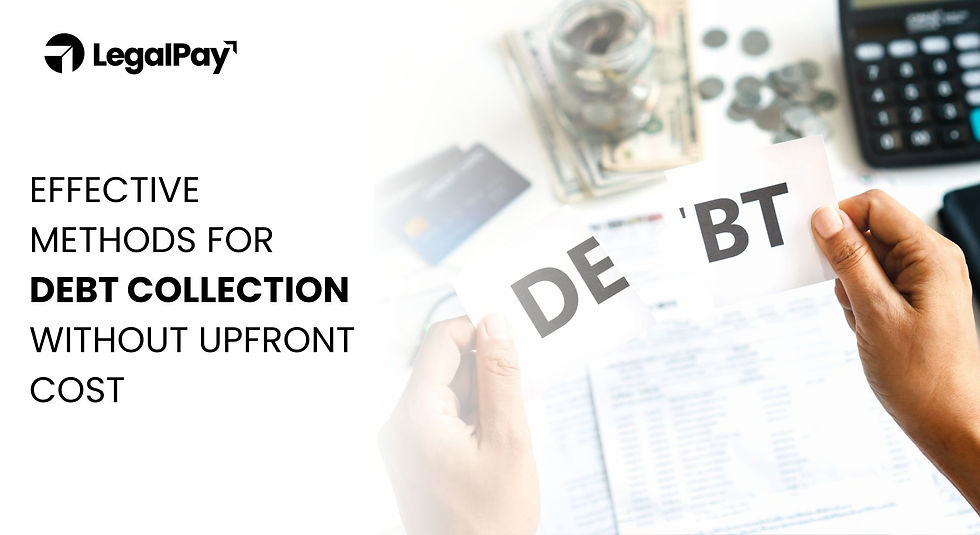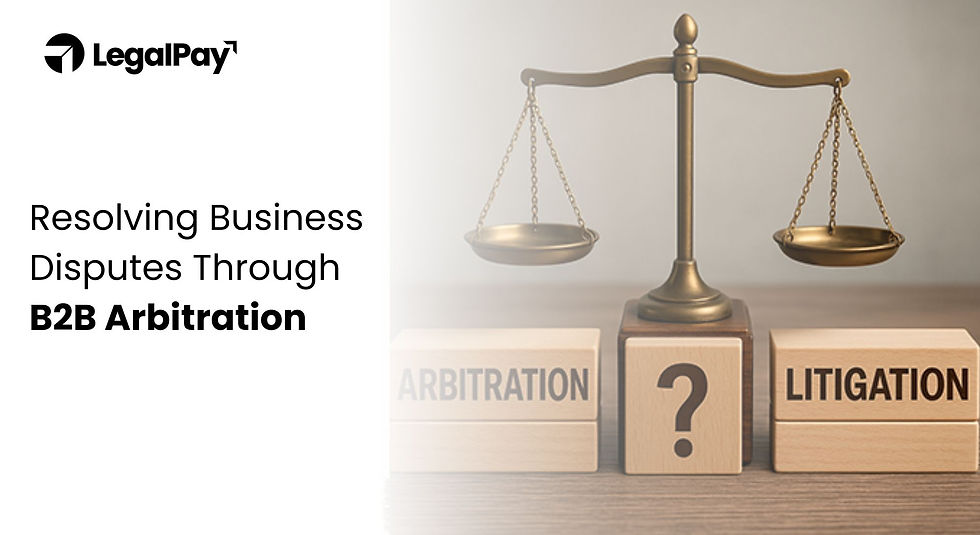What Do You Need to Know When Dealing with Debt Buyers?
- Navneet Singh

- Aug 7, 2024
- 5 min read

Have you received notices from debt buyers regarding your outstanding debts and wonder how to handle these situations effectively?
Dealing with debt buyers can be intimidating and confusing, but understanding the process and your rights is crucial to navigating these interactions. This comprehensive blog provides essential information to help you navigate dealings with debt buyers confidently and protect your financial interests.
Understanding Debt Buyers
Debt buyers are companies or entities that purchase delinquent debts from original creditors or other debt collectors. They typically buy these debts at a discounted rate intending to collect the full amount owed from the debtor. Debt buying is a common practice in the financial industry, where creditors sell off debts that are challenging to collect or have been overdue for an extended period.
Key Considerations When Dealing with Debt Buyers
1. Verification of Debt
When you receive a notice from a debt buyer, it's crucial to verify the debt's validity. Request a debt validation letter from the debt buyer, which should include details such as the original creditor's name, the amount owed, and verification that the debt buyer has the legal right to collect the debt. This step ensures that you are indeed responsible for paying the debt.
2. Know Your Rights
As a consumer dealing with debt buyers, you have rights protected under the Fair Debt Collection Practices Act (FDCPA) and other consumer protection laws. These laws outline guidelines that debt buyers must follow, prohibiting harassment, deceptive practices, and unfair treatment during debt collection. You have the right to dispute the debt, request validation, and limit communication from debt collectors.
3. Negotiation and Settlement
Debt buyers often purchase debts at a fraction of their face value, giving them room to negotiate settlements. If you acknowledge the debt but cannot afford to pay the full amount, consider negotiating a settlement with the debt buyer. This may involve offering a lump sum payment or agreeing to a structured repayment plan that fits your financial situation.
4. Legal Considerations
If you dispute the debt's validity or encounter aggressive collection tactics, seeking legal advice from a consumer rights attorney is advisable. An attorney can help you understand your legal options, challenge the debt in court if necessary, and ensure that debt collectors adhere to applicable laws and regulations.
Tips for Dealing with Debt Buyers
Dealing with debt buyers requires a strategic approach to protect your rights and financial well-being. Here are essential tips to navigate interactions with debt buyers effectively:
Request Written Communication
When communicating with debt buyers, always opt for written correspondence. Written communication helps create a clear record of all interactions, agreements, and disputes. Requesting information in writing also ensures that you have documented evidence in case of any discrepancies or legal disputes. This approach helps maintain transparency and clarity throughout the debt collection process.
Keep Copies of Documents
It's crucial to retain copies of all documents related to your debt and interactions with debt buyers. This includes correspondence, payment agreements, debt validation requests, and any legal notices received. Keeping organized records ensures that you can easily reference details of your communications and agreements. These documents serve as vital evidence to support your claims, challenge inaccuracies, and protect your rights in case of disputes.
Stay Informed
Stay updated on your rights and protections under consumer protection laws, particularly the Fair Debt Collection Practices Act (FDCPA) and other relevant regulations. Understanding your rights allows you to recognize and address unfair or unlawful debt collection practices promptly. Key rights include the right to dispute debts, request validation, limit communication, and seek legal recourse against harassment or deceptive tactics. Knowledge empowers you to assert your rights effectively and navigate the complexities of debt collection with confidence.
Seek Legal Advice
If you encounter challenges or legal complexities when dealing with debt buyers, consider seeking advice from a consumer rights attorney. An attorney specializing in debt collection practices can provide valuable insights into your legal options, review your case for potential violations of consumer protection laws, and represent your interests in negotiations or court proceedings. Legal guidance ensures that your rights are upheld and strengthens your position when dealing with debt collectors.
Understand the Statute of Limitations
Be aware of the statute of limitations governing debt collection in your state. The statute of limitations sets the maximum period during which debt collectors can legally pursue debt repayment through the court system. Once this period expires, debt collectors lose the right to sue you for the debt. Understanding the statute of limitations helps you assess the enforceability of the debt and determine appropriate actions to protect yourself legally.
Conclusion
By following these tips, you can effectively manage interactions with debt buyers and safeguard your rights as a consumer. Requesting written communication, maintaining organized records, staying informed about consumer protections, seeking legal advice when necessary, and understanding the statute of limitations are essential strategies to navigate debt collection challenges successfully. Remember, proactive measures empower you to handle debt collection disputes confidently and protect your financial well-being.
At LegalPay, we are committed to supporting consumers in understanding and asserting their rights when dealing with debt buyers. Contact us today to learn more about how we can help you navigate debt collection challenges and protect your financial interests effectively.
Frequently Asked Questions
What should I do if a debt buyer contacts me about an old debt?
Debt buyers often purchase debts that may be several years old. If contacted about an old debt, first, verify the debt's validity by requesting a debt validation letter. This letter should include details such as the original creditor's name, the amount owed, and proof that the debt buyer has the legal right to collect the debt. Review this information carefully before taking any further action.
Can debt buyers take legal action against me?
Yes, debt buyers have the legal right to pursue repayment of debts through legal means, such as filing a lawsuit. However, they must adhere to the statute of limitations, which limits the time within which they can sue you for the debt. If the debt is beyond the statute of limitations, you can raise this as a defense in court.
How can I negotiate with a debt buyer?
Negotiating with a debt buyer involves understanding your financial situation and offering a realistic repayment plan or settlement amount. Start by assessing your budget and determining what you can afford to pay. You can negotiate for a lump-sum settlement, a structured repayment plan, or even a reduced amount depending on your circumstances.
What are my rights when dealing with debt buyers?
As a consumer, you have rights protected under the Fair Debt Collection Practices Act (FDCPA). These rights include the right to dispute the debt, request validation, limit communication (such as requesting that debt collectors only contact you in writing), and be free from harassment or deceptive practices during debt collection.
Should I hire a lawyer to deal with debt buyers?
Hiring a consumer rights attorney can be beneficial if you encounter legal complexities, aggressive debt collection tactics, or if you're unsure how to proceed. An attorney can provide legal advice, review debt collection notices for compliance with consumer protection laws, negotiate on your behalf, and represent you in court if necessary. Their expertise ensures that your rights are protected and that you receive fair treatment in dealing with debt buyers.




Comments